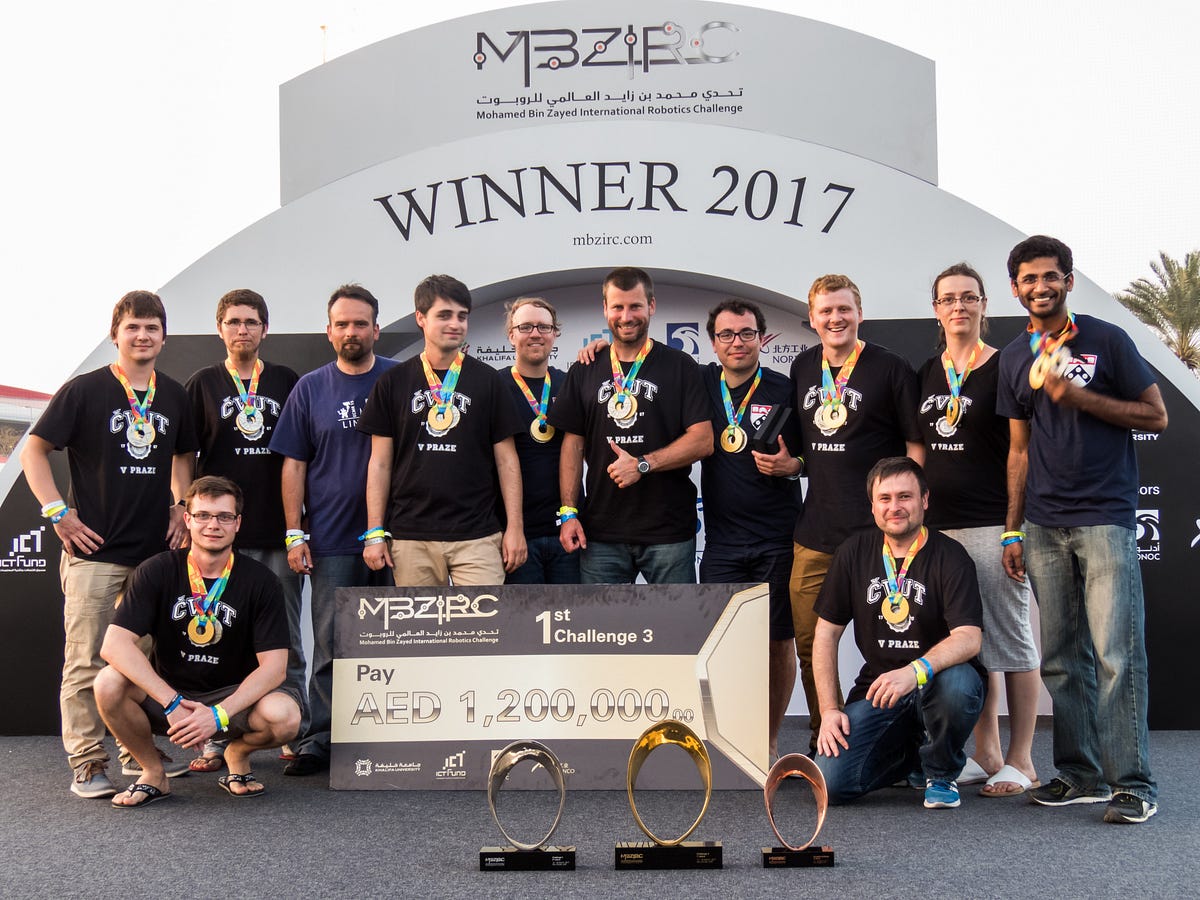
GRASP Team Snags $350,000 in International Robotics Competition
A team of roboticists from the GRASP Lab has taken home a $350,000 prize from the Mohamed Bin Zayed International Robotics Challenge in Abu Dhabi.

Collaborating with colleagues from the University of Lincoln in the UK and the Czech Technical University in Prague, Giuseppe Loianno, Dinesh Thakur and Justin Thomas made up the Penn contingent at the bi-annual competition organized by Khalifa University.
There, teams attempt up to three different tasks, each carrying a $350,000 prize, and the Grand Challenge, where the team with the highest cumulative score wins $1 million.
Challenge 1 involved attempting to land a flying robot on a moving car, Challenge 2 required a ground-based robot to pick up tools and use them to shut off a valve on a control panel, and Challenge 3 featured a variety of color-coded objects that a team of three flying robots needed to retrieve and place in a bin.

Full scores were only awarded if the robots work completely autonomously, using on-board sensors to identify their targets and pre-loaded programming to decide how to approach them. Any human supervision incurred a penalty.
As members of Penn Engineering Dean Vijay Kumar’s group in the GRASP Lab, the Penn team’s flying-robot expertise naturally lent itself to Challenges 1 and 3, where they placed second and first, respectively.
Those scores were close enough to put them within striking distance of the Grand Challenge, even though the team didn’t bring a ground-based robot and could not compete alone in Challenge 2.
“Since we were very good in the other challenges, the organizers asked us to team with another university only involved in Challenge 2,” Loianno says. In the end, the collaborating team’s task in Challenge 2 was unable to be performed autonomously, leaving the Penn squad in third in the Grand Challenge.
